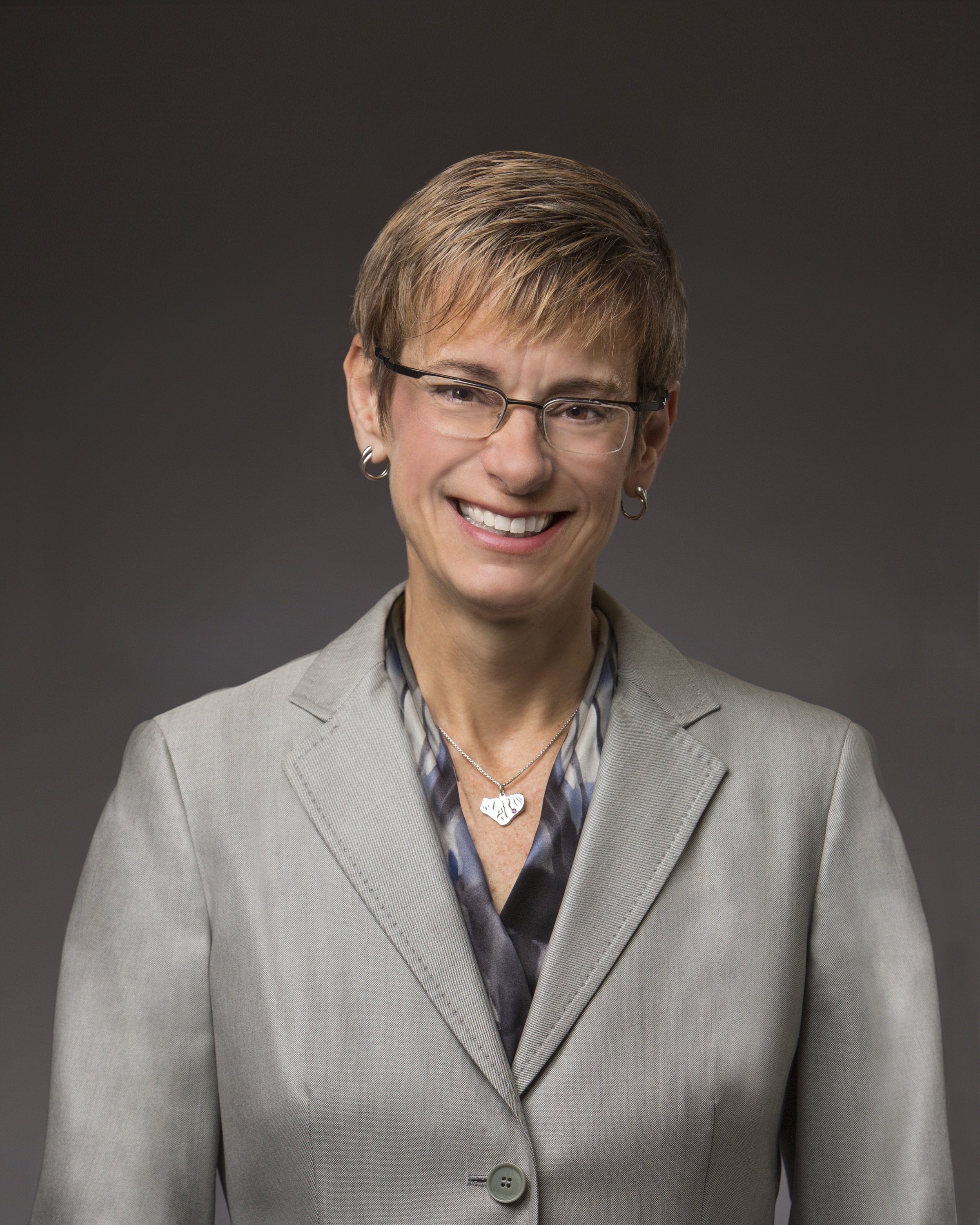Elizabeth Garrett
Elizabeth Garrett is the daughter of Jane and Robert Garrett of Oklahoma City, and a graduate of Putnam City North High School in 1981.
One of Garrett’s former teachers remembers her as an outstanding student, very focused and goal oriented. She loved to learn and learning was easy for her. By all accounts she was a student who made teaching a joy.
Garrett also had a quick mind, was extremely articulate and was a ferocious competitor. That’s why she and her partner won many state and regional debate tournaments, and why to this day she is listed on the National Speech and Debate Association website for finishing first in the nation in extemporaneous speaking in 1981.
Four years after graduating from Putnam City North, Garrett left the University of Oklahoma as a Phi Beta Kappa graduate holding a Bachelor of Arts degree with special distinction in history. She went on to graduate from the University of Virginia School of Law in 1988 as valedictorian and was honored with the Thomas Marshall Miller prize, given by law school faculty to the year’s most outstanding graduate.
After a year as a law clerk in the Court of Appeals for the District of Columbia, Garrett took the position of law clerk for one of the giants of American jurisprudence: Justice Thurgood Marshall, the country’s first African American Supreme Court Justice.
It was an unforgettable experience for Garrett. She called Justice Marshall the most outstanding litigator of the 20th century and says that despite his passing, Americans feel his influence and relevance in our day-to-day lives.
As one of his former clerks, she stood in vigil at his casket in 1992 in the Supreme Court building.
After her work with Justice Marshall, Garrett went to The Hague, Netherlands, to serve as law clerk for a judge serving as an arbitrator at the Iran-United States Claims Tribunal, originally established to resolve the hostage crisis and claims coming out of that crisis.
Her next position was a professor of law and deputy dean for Academic Affairs at the University of Chicago Law School. While there she was named by a Chicago newspaper as one of 40 most influential Chicagoans under age 40.
Because of her vast knowledge of election law she appeared on Nightline, NBC Nightly News, Hardball, Fox National News, the CNN Financial Network and other national news programs as legal wrangling and rhetoric heightened following the contested Bush-Gore election.
Her next appointment was as vice president at the University of Southern California. As the school’s second-ranking officer, she oversaw the College of Letters, Arts and Sciences, the School of Medicine of USC and 16 other professional schools, in addition to the divisions of student affairs, research, libraries, information technology services, student religious life and enrollment services. She also taught law.
Garrett is the author of more than 50 articles, book chapters and essays, and is co-author of the nation’s most influential casebook on legislation and statutory interpretation. She’s served as visiting professor of law at:
The University of Virginia
Harvard University
The Central European University in Budapest, Hungary
The Interdisciplinary Center Law School in Tel Aviv, Israel
Through the years she took on public service after being appointed to commissions and boards by presidents, governors and senators. She has won countless prestigious professional honors and awards. Garrett served as president of Cornell University before her untimely death just prior to being inducted in the Putnam City Wall of Fame.
Ever humble and appreciative, Garrett said that the wonderful teachers at Putnam City North helped develop her enthusiasm for civics, history and public discussion and debate. It’s clear, though, that it’s her own natural gifts that made her an accomplished scholar and a citizen of the world, someone with a keen analytical mind who in important ways has been present to and part of history.
Beth Garrett died March 6, 2016 from colon cancer, after undergoing aggressive treatment to cure the disease. Though she is not with us, the Putnam City Foundation is grateful to honor her legacy as a role model for all. As she said, “It is important for women and men to see strong capable women in positions of leadership, so we understand that certain characteristics such as gender and race do not determine how well people do. . . “


